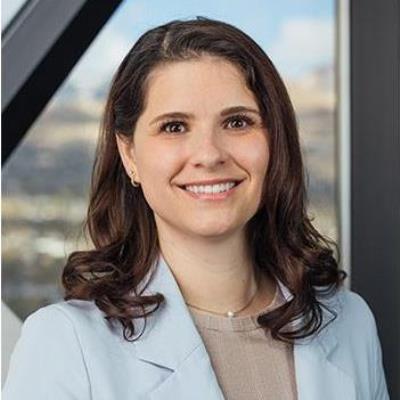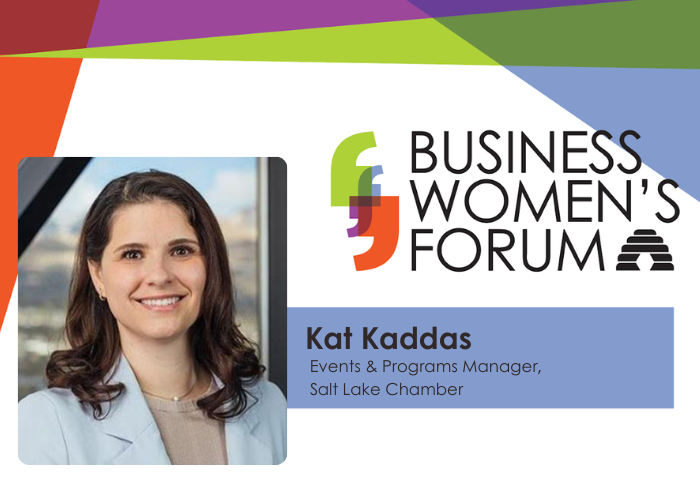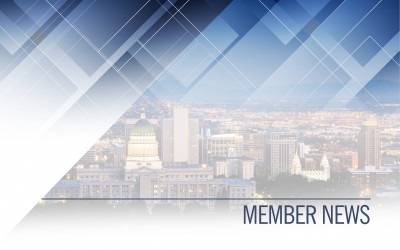The advice to “put your own oxygen mask on before assisting others” is often overlooked, despite its repeated emphasis in airplane safety briefings and numerous self-help books.
Many of us, especially women, are conditioned to prioritize the needs of others. The never-ending mental load of to-do lists often keeps us from even considering our own needs, desires or rest. And when we do pause, it’s often met with guilt, as if rest equals irresponsibility.
We’ve been led to believe our worth is tied to productivity and our ability to please everyone — a standard that’s both unrealistic and exhausting. Personally, I’ve wasted years overcommitting, avoiding conflict, constantly seeking approval and over-apologizing. It’s draining and unsustainable — a straight path to burnout.
Here’s the truth: we don’t need to earn our rest, hide our struggles or be everything to everyone. Real leadership includes caring for yourself, setting boundaries, asking for help and knowing when to pause. So let’s create a new priorities list — one that focuses on you.
Prioritize Self Care (Without the Guilt)
“You can’t put out a fire with an empty bucket.”
Self care is often mistaken for indulgence — bubble baths, shopping sprees, spa days. While those can be enjoyable, self care isn’t one-size-fits-all. It’s not about trends or temporary fixes. It’s about replenishment.
Think of your stress as a fire and your energy as the bucket of water. When your bucket is empty, you can’t help yourself — let alone others. So instead of chasing generic wellness advice, pause and identify five things that genuinely refill your bucket. Then, intentionally integrate them into your daily or weekly routine.
Let’s abandon the idea that self care is selfish. It’s not indulgence — it’s maintenance.
Set Boundaries Like a Boss
“You should think of your energy as if it’s expensive, as if it’s a luxury item.”
– Taylor Swift
Boundaries aren’t walls — they’re healthy limits that protect your time, energy and well-being. In today’s world of remote work and constant connectivity, boundaries often disappear; late-night emails, weekend “quick questions” or the sense that you always need to be available. While our careers are important, allowing them to overtake our personal time is a sure-fire way to burnout — not just ourselves but also our loved ones.
To protect your peace:
- Define your work hours and stick to them.
- Communicate availability clearly with colleagues or clients.
- Practice saying no without guilt.
- Be honest about your limits and needs.
Treat your time and energy like valuable resources — because they are.
It’s Okay to Ask for Help
“Silence is not brave leadership, and silence is not a component of brave cultures.”
– Brené Brown
We’re taught that independence equals strength and that asking for help is a sign of weakness. But the idea that you must do it all alone is both harmful and unrealistic. “If you want it done right, do it yourself” might work in the short term, but long term? It leads to burnout, resentment and isolation.
Asking for help requires vulnerability, and that’s where real leadership lives. Brené Brown reminds us, “To be the person we long to be, we must again be vulnerable. We must take off the armor… and let ourselves be seen.”
Asking for help builds trust, empowers others and strengthens relationships. Strong leaders delegate, not because they can’t, but because they know they shouldn’t do it all.
Set Realistic Expectations (For Yourself and Others)
“To err is human.”
You are not a robot. Read that again. Even at your best, perfection is unattainable. Yet we often expect superhuman performance from ourselves, even when we offer grace and understanding to others.
This is the productivity trap: trying to cram a week’s worth of output into one day and expecting yourself to operate like a machine. Stop it. You’re human. You’ll mess up, miss a deadline, drop the ball — and that’s okay.
Instead of perfectionism, try compassionate realism. Recognize your limits. Give yourself permission to rest and recover. And do the same for those around you.
Rest, Reflect and Regulate
“Sit in the suck.”
Let’s normalize rest as a necessary and productive part of leadership. Burnout doesn’t earn you medals; it renders you unavailable. Rest restores clarity, focus and emotional balance. And it’s not just about sleep — rest can be joy, quiet, creativity or movement.
It’s also crucial to tune in emotionally. Not all feelings are pleasant. When discomfort arises, our instinct is often to numb, distract or fix. But true growth comes from sitting with it — “sitting in the suck.”
Get curious: What’s this emotion trying to teach me? What need isn’t being met?
When you regularly reflect, feel and regulate, you build emotional intelligence and resilience — essential leadership traits. Consider this time a non-negotiable meeting.
You’re Allowed to Lead Differently
“Do not follow where the path may lead. Go instead where there is no path and leave a trail.”
– Ralph Waldo Emerson
All of this — self care, boundaries, delegation, emotional regulation — is leadership. It’s not fluff. It’s foundational.
This new priorities list places you at the center. And that’s not selfish — it’s sustainable. By protecting your energy, asking for help, setting realistic expectations and embracing rest, you create space to lead with clarity, patience and presence.
The path of a recovering people-pleaser is long, but every step offers a lesson. Take the meeting with yourself. Say no when needed. Put your own mask on first.
As my mother always says:
“Here we grow — there’s no growth in comfort, and no comfort in growth.”

About Kat Kaddas, Events & Programs Manager, Salt Lake Chamber
Katrina (Kat) Kaddas is the Events & Programs Manager at the Salt Lake Chamber. She has been with the Chamber since 2018. Prior to her time with the Salt Lake Chamber, Kat worked at Walt Disney World in Orlando, FL where she helped make magic happen at the Jedi Training Academy and Test Track. Kat graduated from Westminster College in 2017 with a bachelor’s degree in Documentary Film Production.
*Any reference obtained from this blog to a specific initiative, issue or topic does not constitute or imply an endorsement by the Salt Lake Chamber. The views and opinions expressed in this blog do not necessarily reflect those of the Salt Lake Chamber.


